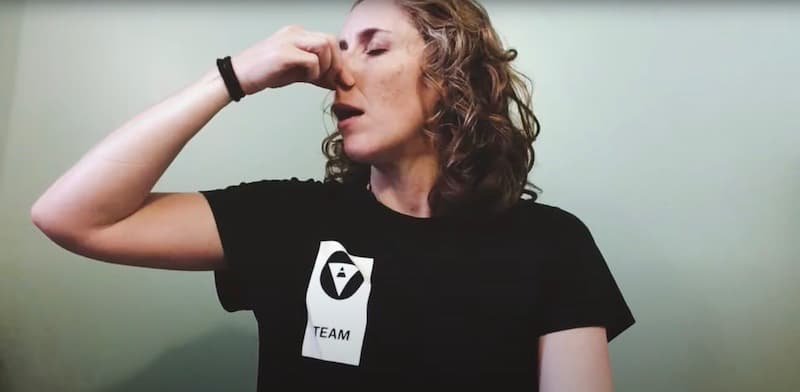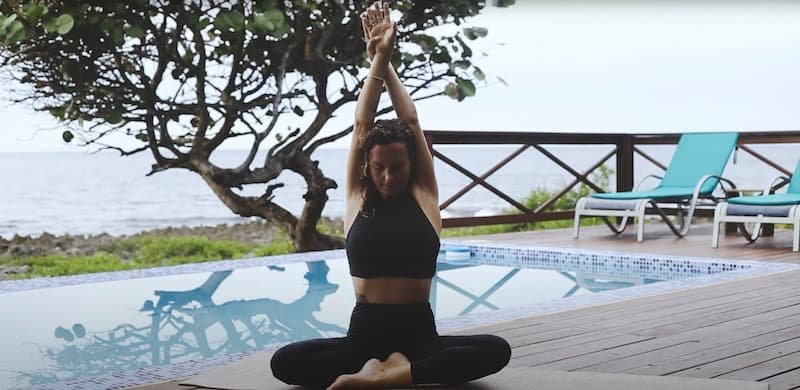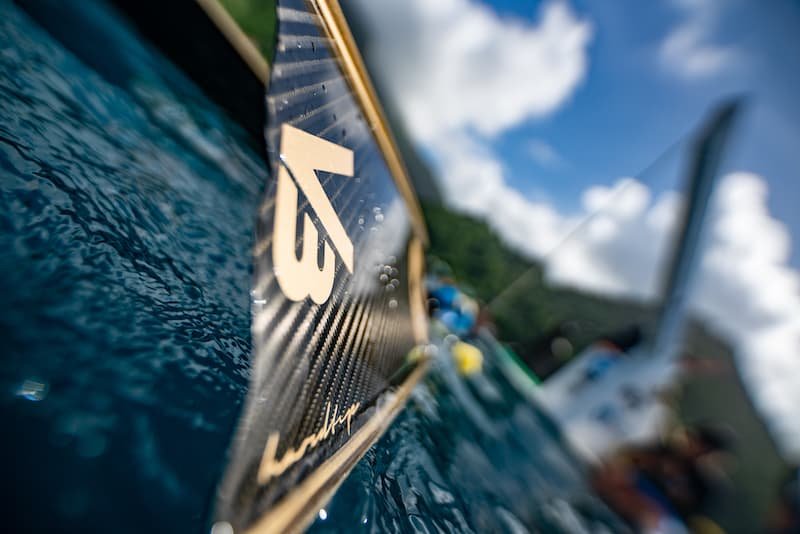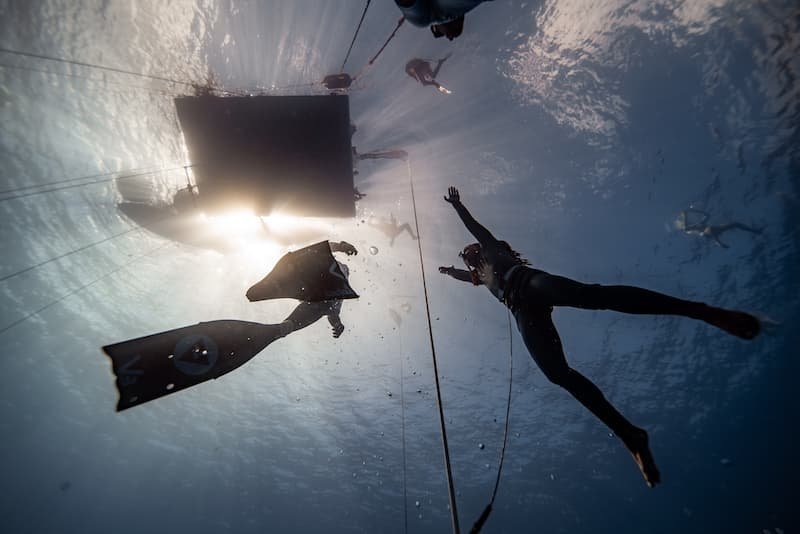
 Nick Pelios
Freediver, Creator
Nick Pelios
Freediver, Creator

 Nick Pelios
Freediver, Creator
Nick Pelios
Freediver, Creator
Do you find yourself struggling to navigate through the myriad of resources available for learning freediving techniques? It's understandable to feel overwhelmed by the sheer amount of information that's out there. However, rest assured that we have you covered! We have curated a concise list of four tips that are designed to expedite your mastery of freediving skills.
Effective equalization technique is paramount for successful freediving; without it, descending the water column is impossible. Inability to compensate for the reduced volume of the air spaces in your ears and sinuses due to increased ambient pressure while diving can result in injuries and permanent damage, preventing you from diving for an extended period or even permanently. To achieve proper equalization, it's crucial to learn the correct technique. Pinch your nose, and push air with your tongue towards the back of your mouth while keeping the tip on your upper front teeth. Avoid inflating your cheeks or tensing your facial muscles. A popping sound in your ears indicates that the air has passed through to your middle ear cavity. To improve, practice in front of a mirror, face down and gradually try free immersion on the diving line. Consider attending equalization workshops or masterclasses to enhance your skills, and most importantly, practice diligently!

Enhancing flexibility offers various benefits, including relaxation, adaptability to depth, and improved body posture. However, achieving better muscle flexibility requires consistent training over time. To promote flexibility in your upper body, hips, lungs, and diaphragm, it's essential to practice specific stretches as part of your dry exercise routine. Accessible resources, such as stretching guides, videos, and programs, can help you create a personalized routine that aligns with your freediving goals. It's crucial to seek guidance from a professional, such as a freediving school, to learn and practice safely. Additionally, warming up before diving sessions is vital to prevent cramps, injuries, and promote relaxation.

In freediving, comfort and simplicity are crucial. It's essential to have the appropriate gear to ensure a safe and comfortable diving experience. Your wetsuit should fit snugly, not too loose or tight, and keep you warm while allowing flexibility for smooth movements and unrestricted breathing. Fins with foot pockets that fit well, providing enough stiffness to match your kicking technique, are essential. A well-fitted, low-volume mask with no leaks and a nose clip that suits your nose and facilitates proper equalization performance is also crucial. Your safety gear, including a lanyard that meets safety standards and is the correct length for you, buoy, rope, safety stop, and flags, should be well-maintained and in good working condition. Lastly, a neck weight that stays in place during descent is necessary.

To ensure safe and successful progress in freediving, acquiring knowledge is of utmost importance. Attending courses, workshops, and masterclasses taught by experts in the field is the best investment you can make. Research various freediving schools in different locations and countries and choose the one that suits you best. However, it's essential to verify their credentials and professionalism to ensure quality instruction. Avoid relying solely on "self-taught" methods and video tutorials, as they can be dangerous without the physical guidance of a professional freediving instructor. Not only can you injure yourself, but you may also endanger others.

When it comes to your freediving journey, it's important to consider one crucial factor. Freediving techniques are diverse and what works for one freediver may not work for another. While guidelines and tips can be helpful, it's crucial to try different techniques and find what works best for you. Don't get discouraged or stuck on one step or technique. Pay close attention to your body and keep what feels comfortable and natural. Scientific studies in the world of freediving are increasing, providing a better understanding of the sport and its techniques. However, it's essential to prioritize your comfort and relaxation while freediving, rather than striving for the perfect technique. Remember to enjoy the dives and have fun, as that is the true essence of freediving!